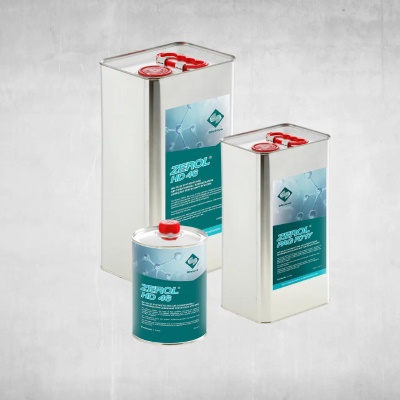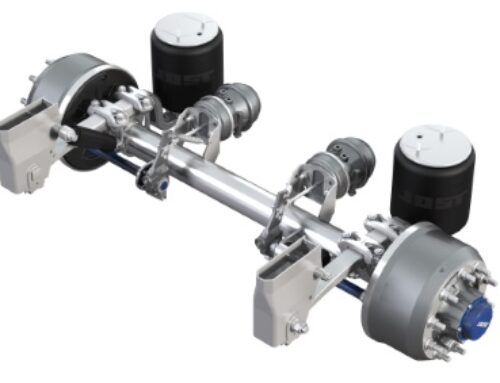Shrieve’s tips for selecting AC system lubricants
 Lubricant solutions specialist Shrieve Products International Ltd has highlighted the critical considerations it says fleet managers must make when selecting R1234yf service lubricants.
Lubricant solutions specialist Shrieve Products International Ltd has highlighted the critical considerations it says fleet managers must make when selecting R1234yf service lubricants.
“In the evolving landscape of HGV, PSV and LCV fleets, the importance of selecting the right service lubricants for AC systems cannot be overstated,” said Liz Dixon, technology manager at Shrieve Products International.
“This is particularly true with the shift towards using HFO-1234yf, a refrigerant chosen for its low global warming potential (GWP) and regulatory compliance.
“As the industry moves towards environmentally friendly refrigerants like R1234yf, the selection of service lubricants becomes increasingly critical. Shrieve’s research underscores the need for lubricants that not only meet the technical demands of R1234yf systems but also contribute to the overall efficiency and reliability of HGV, PSV, and LCV fleets.
“This includes leveraging advanced lubricant technologies that offer the necessary stability, miscibility, and compatibility, ensuring fleet managers can navigate the transition to low-GWP refrigerants with confidence.”
Understanding the role of lubricants in AC systems
“The primary role of lubricants in automotive AC systems is to ensure smooth operation of all moving parts within the refrigerant compressor and auxiliary valves,” said Dixon.
“Beyond lubrication, these fluids are also essential for heat dissipation, sealing, and noise reduction. The choice of lubricant affects the system’s overall efficiency, with factors such as the compressor type, system design, operating parameters, and the refrigerant and oil selection playing pivotal roles.”
Key properties of automotive compressor oils
For an AC system to function optimally, says Shrieve, the lubricant must possess certain properties, including superior lubricity to protect compressor components, an optimised viscosity profile for maximum energy efficiency, and compatibility with system components such as the refrigerant gas, metals and elastomers. Additionally, in electrically driven compressors, lubricants must also provide electrical insulating properties.
Technical requirements for HFO lubricants
Dixon commented: “When fleets are selecting lubricants for HFO-1234yf systems, compatibility with original equipment manufacturer (OEM) specified lubricants is crucial. The industry has historically favoured polyalkylene glycols (PAGs) for their balance of miscibility with refrigerants, lubricity, and stability.
“However, with the introduction of R1234yf, the chemical structure of the refrigerant necessitates a reassessment of lubricant selection, as there are many different types of PAGs, given R1234yf’s distinct properties compared to its predecessor, R134a.”
Challenges with R1234yf systems
R1234yf operates under similar conditions to R134a and offers comparable cooling capacity and energy efficiency, but nevertheless, its lower thermal stability and unique molecular structure require special attention when selecting lubricants, Shrieve contends.
The lubricant must not only be chemically stable and have the correct level of miscibility with R1234yf, says the company, but also must be capable of countering the refrigerant’s inherent instability.
Lubricant technology: PAGs versus POEs
“While PAGs have been the lubricant of choice for R134a systems, the transition to R1234yf raises questions about their suitability,” said Dixon.
“Shrieve’s analysis indicates that while double end-capped PAGs remain preferred for OEM applications, the aftermarket industry should now consider double end-capped PAGs as the primary service choice also based on performance and compatibility with R1234yf. Polyol esters (POEs), despite their use in stationary systems, may not be ideal for automotive applications due to their reactivity with moisture.”
Optimising lubricant selection for R1234yf
For R1234yf systems, selecting a lubricant goes beyond mere compatibility, says Shrieve; it involves ensuring the lubricant can withstand the refrigerant’s chemical reactivity without compromising system integrity. This includes evaluating miscibility, stability, and the potential for breakdown of both the lubricant and other system components under the chemical environment unique to R1234yf.
“We have some of the best chemists there are working daily on our lubricants, and our expertise highlights the importance of choosing lubricants that offer not only the right physical and chemical properties but also enhanced performance and protection for AC systems operating with R1234yf,” added Dixon.
The future of automotive AC lubricants
In conclusion, says Shrieve, the selection of R1234yf service lubricants demands careful consideration of various technical factors, from miscibility and stability to compatibility with existing system components.
“By adhering to the guidelines and insights provided by experts like Shrieve, fleet managers can ensure their vehicles’ AC systems operate efficiently, sustainably, and reliably in the face of evolving environmental regulations and industry standards.”










